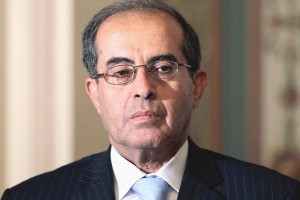Who is Mahmoud Jibril?
September 17, 2011

In light of the fall of Ghaddafi’s Libyan regime, one question has been uttered across the world: what comes next for the liberated country? One man has come forward from the revolution to answer the question. The new Libyan Prime Minister, Mahmoud Jibril, has called for his people to “participate in the building of the future to build institutions with the aid of a constitution that does not differentiate between a man and a woman, sects or ethnicities.” While these words will likely reassure the world about the nature of the new government, words alone will not decide the fate of a people emerging from struggle. In the past century, history records the substitution of one tyrant for another in the fall of Batista to Castro. However, a change in regime does not guarantee an exchange of evil for evil. Therefore, a new question now comes to light, who is Mahmoud Jibril?
Due to the unfortunate lack of media attention, very little is known about Jibril. He was educated outside of Libya, first at the University of Cairo, and then he received his doctorate at the University of Pittsburgh in Political Science. He served in the government under Ghaddafi and wrote a critique of the United State’s foreign policy in the Middle East. When the revolution began, he joined with the rebels early on, unlike many who sided with the rebels after the fall of Tripoli. In calling his nation to unite and move forward, Jibril has taken a stance opposing Ghaddafi’s demands for continued violence.
Jibril’s American as well as Egyptian education shows promise in how he handles the new country, and his work under Ghaddafi at least suggests he has political experience in leading his people. However his motives can’t fully be understood due to a lack of knowledge regarding his origins and upbringing. Mahmoud Jibril has the world watching him. He can choose to play it safe and rebuild his nation on the basis of human rights, or he can put on a show until global attention is drawn elsewhere and then emerge as another malevolent leader. The elusiveness of Jibril’s identity cloaks the fate of his people.





